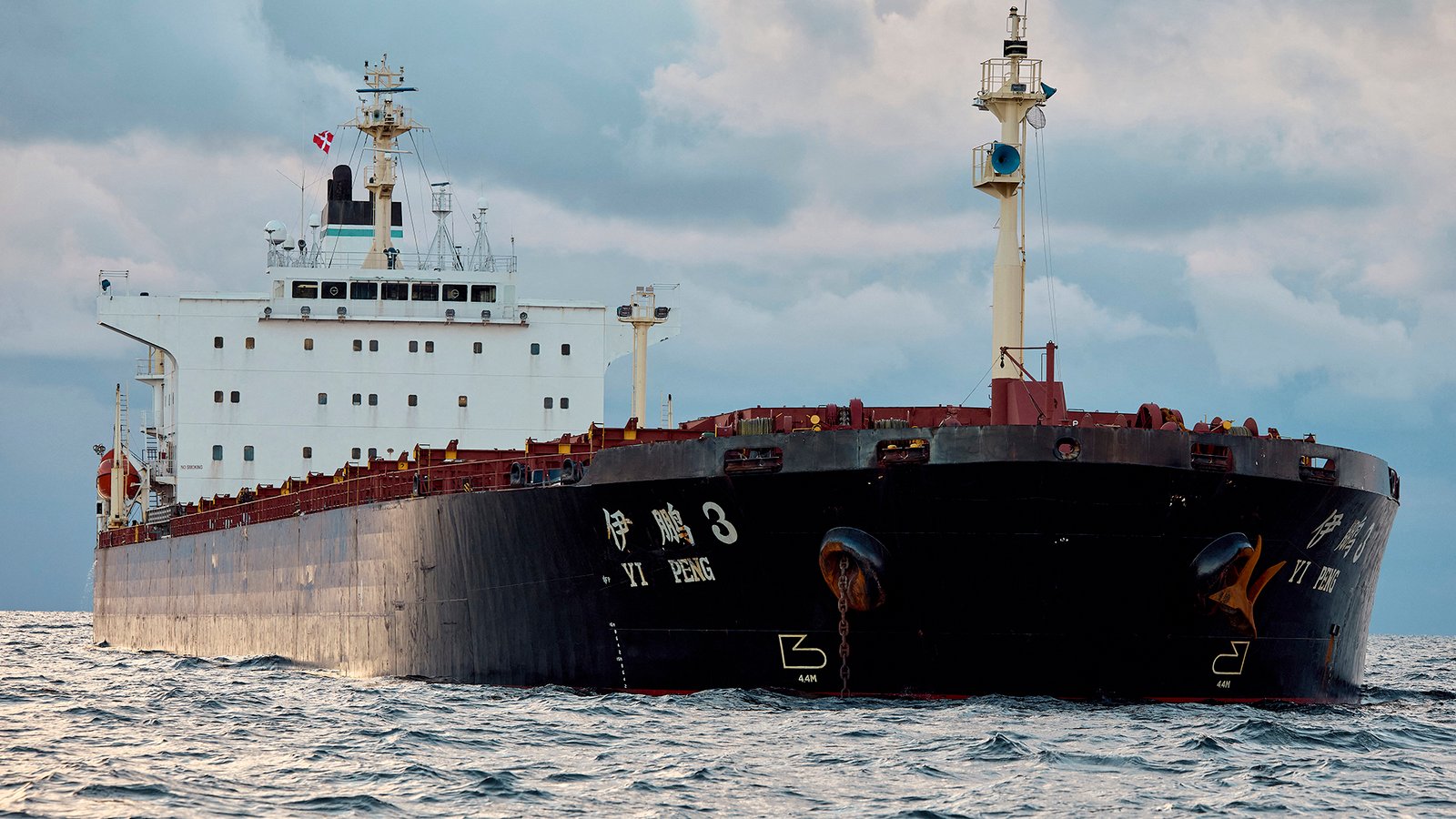A massive cargo ship from China, suspected of intentionally cutting fiber optic cables in the Baltic Sea, has left the area amidst an international investigation. These cables, crucial for global internet connectivity, have been targeted in recent suspicious maritime incidents leading to increased outages. The ship had been stationary in the Kattegat strait between Sweden and Denmark for months as investigators from multiple countries searched for evidence. However, satellite images now show the vessel heading north and exiting the strait. Swedish authorities, leading the investigation, revealed that Chinese officials denied their request to allow prosecutors on board the ship, despite previous agreements of full cooperation. Chinese officials claim the ship departed to ensure the crew’s well-being.
Investigators claim ship dragged anchors for more than 100 miles
On November 17, a major internet link between Finland and Germany went offline abruptly, followed by another connection between Sweden and Lithuania the next day. Swedish investigators linked these outages to severed subsea fiber optic cables. These cables, critical for global internet infrastructure, are susceptible to damage from various sources such as natural disasters, accidents, or wear and tear. However, suspicions arose in this case due to the timing and circumstances. A Chinese bulk ship, Yi Peng 3, carrying Russian fertilizer, traveled along the path where the cables were cut. Swedish, Danish, Finnish, and German investigators boarded the ship and found evidence suggesting deliberate actions.
Initial investigations revealed that the ship’s transponder was disabled around the time of the outages, and it dragged its anchor for 100 miles. The ship continued moving despite the slowed anchor, indicating a deliberate act rather than an accidental incident. German Minister of Defense Boris Pistorius stated that the severing was not accidental. Suspicions arose that the ship’s captain may have received instructions from Russian intelligence officers, although these claims were denied by the Kremlin. The ship’s sudden departure from the strait raises questions about the incident.
Mysterious cable damage is on the rise
Recent years have seen an increase in suspicious activities near subsea cables. Taiwan accused China of directing ships to sever cables connecting the Mastu Islands, which China denied. Estonian prosecutors also implicated a Hong Kong-registered container ship in damaging cables linking them to Finland. These incidents have prompted global efforts to enhance cable security, with several countries signing a joint United Nations statement to improve cable reliability and repairability. Denmark joined this initiative following the recent cable severing incidents.
While efforts are underway to prevent future damage, the sudden departure of the Yi Peng 3 from the Baltic Sea leaves unanswered questions about the intentional nature of the recent cable damage.
